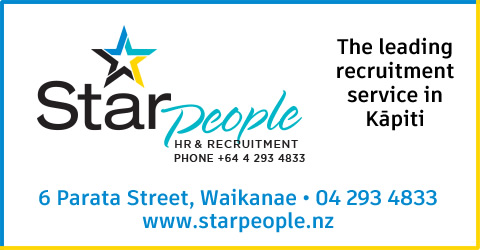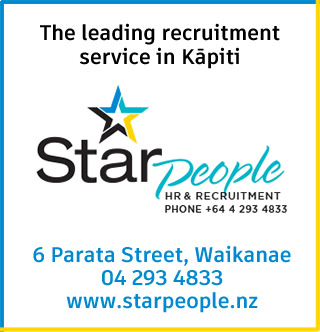A message from Councillor Jackie Elliott
“At this stage in the KCDC Annual Plan Process, in which we set the rates for the year, I would appreciate your comments on a few issues. Can you please circulate this request; The Annual Plan is expected to be complete by the 5th of June, so I am sorry this is a rather rushed request.
I have attached a copy of the operative rates remission policy. I refer to part 10 – Hardship.
The total annual pool of funding available for Rates Remission due to hardship is being raised this year to $200,000 due to the introduction of water meters and projected extra applications for rates remission due to hardship. Applications can be made each year during October, and when the fund is all allocated in mid December, there is no more relief available until the next year.
However, considering the many older persons in Kāpiti on fixed lower incomes, do you think it would be desirable to have a separate Rates Remission fund available for those with age or disease related medical conditions, or permanent mobility issues, who are residing in rateable private properties, and under the care of community health service providers, who have increased water usage,either personal hygiene or laundry due to medical conditions?
My second question is; KCDC have a statutory obligation to carry out its business in a manner that is ‘sustainable. ‘Other than Government provided subsidies, all income is obtained through rates.
Considering the cost of rates to households and businesses, and the accumulative effects of annual increases, on your fixed incomes, is the manner in which KCDC carries out it’s business ‘sustainable’?
I thank you for taking the time to consider your responses to the above questions, and I really value your input, which will help me lobby effectively for fairness and affordability when around the table, setting the rates over the next two weeks.
Kind Regards
Councillor Jackie Elliott
Districtwide Councillor for Kāpiti
[email protected]
PART 10
RATES REMISSION FINANCIAL HARDSHIP POLICY
Policy Objective
The objective of this Policy is to:
financial hardship under section 109 of the Local Government Act 2002 and
section 85 of the Local Government (Rating) Act 2002.
Community Outcomes
The Community Outcome that this Policy relates to is:
Introduction
This Policy provides the framework for partial remittance of rates to ratepayers who
need financial assistance on the basis of financial hardship.
This Policy covers ratepayers who are facing both long term and temporary financial
difficulty. It provides for consideration of financial hardship for ratepayers owning
their own home, either outright or with a mortgage and from ratepayers owning a
rental property and from owners of licence to occupy retirement villages, where the
tenant/licensee qualifies in terms of the general criteria set out below and certain
requirements for transfer of remission benefit are met.
Maximum Level of Remission
The Council will make available up to $300 per rateable property for those
ratepayers/applicants or up to $150 per licence to occupy property within a retirement village who meet the criteria below. The Council has allocated $100,000 per year (in the 2012/13 year increasing to $200,000 by 2014/15 year) for rates remission for financial hardship. It will not provide a total rates remission beyond this amount unless the available funding is adjusted via the Long Term Plan process.
Assistance will be available to ratepayers who meet the criteria and are paying over
5% of their net household income on Kāpiti Coast District Council rates, after netting off any Central Government rates rebate, subject to the priority statement made in the previous paragraph.
Priority will be given to assisting those ratepayers who meet the criteria and are
paying greater than 7% of their net household income (after tax) on Kāpiti Coast
District Council rates after netting off any Central Government rates rebate.
Funding will be available until such time as the rates remission fund is fully
subscribed in each financial year. However, the majority of rates remissions
decisions are expected to be made on a case by case basis after 1 November and by mid December each financial year. This timing allows for the bulk of Central
Government Rates Rebates to be processed. The applications for Rates Remissions
for financial Hardship will be required by 1 October each year explaining the hardship incurred and providing appropriate support.
138 KĀPITI COAST DISTRICT COUNCIL │LONG TERM PLAN 2012-32 PART TWO
Criteria for Approving Rate Remission: Hardship (general)
Applications will be assessed against the following criteria:
(A) Ratepayer: Owner of Property
A ratepayer may be eligible for rates remission on the grounds of financial hardship
under the following categories:
On-going hardship:
ownership structures of these properties do not qualify for this remission;
residential;
below the equivalent central government benefit payment and proof of income
is supplied;
receiving all relevant funding; and
than 5% of net disposable income .
Incurring of One-off Costs Causing Hardship (one year only):
similar ownership structures of these properties do not qualify for this
remission;
benefits;
receiving all relevant funding;
issue or for significant housing maintenance
 within the same financial year and
within the same financial year andproof of expenditure and reasons for expenditure is provided;
and
disposable income, paid on rates net of any central government rates rebate to
more than 5%.
(B) Ratepayer: Landlord general
A landlord may apply for a rates remission provided that:
income benefits; and the tenant also provides a joint application form and proof
of income and an explanation of the hardship experienced with appropriate
support;
rental agreement is provided;
LONG TERM PLAN 2012-32 PART TWO │ KĀPITI COAST DISTRICT COUNCIL 139
and a record of the reduced rental to be paid by the tenant or a payment from
the landlord to the tenant of the rate remission as a consequence of receiving
the remission;
remission via an equivalent adjustment to rental.
Should the landlord receive the remission and then not continue to pass on the
remission to the tenant, the amount of the remission will be subsequently charged to the relevant rateable property.
Landlord and Tenant:
Water Variable Charge Paid by Landlord and On-Charged to Tenant
A tenant of a rental property may apply for a remission for any variable water charge for essential or internal household water use provided that:
income is provided;
and
charge to their tenant by the amount remitted by Council. (Note: All water bills
will identify any fixed charge or variable charge. The landlord is only able to
pass on the variable charge to a tenant for direct payment.)
Essential or internal household water use will be calculated as up to 250 litres per
day for one person.
Should the landlord receive the remission and then not continue to pass on the
remission to the tenant, the amount of the remission will be subsequently charged to the relevant rateable property. The tenant will continue to be responsible for any
remaining variable charge for water.
(C) Ratepayer: Owner of Licence to Occupy Retirement Villages
An owner of a Licence to Occupy Retirement Villages may apply for a rates
remission up to $150 per licensee property provided that:
licensee also provides a joint application form and proof of income and an
explanation of the hardship experience with appropriate support;
weekly/monthly charges and a record of the reduced monthly charge to be paid
by the licensee or a record of a payment from the village owner to the Licensee
of the rates remission as a consequence of receiving the remission;
provided to the licensee via the adjustment to their equivalent annual charge;
and
continue to pass on the remission to the licensee the amount of remission
would be subsequently charged back to the Retirement Village.
140 KĀPITI COAST DISTRICT COUNCIL │LONG TERM PLAN 2012-32 PART TWO
General Conditions
water use is for other than internal or essential household use. In effect this
means the total cost of non-essential water use will be excluded from the
calculation of rates as a proportion of total income.
Declarations Act 1957 of total household income and their total financial
position for the purposes of the remission assessment.
Assessment
All rates remission applications will be treated on a case-by-case basis and will be
approved/declined by the Group Manager, Finance in conjunction with a suitable
qualified person from the community e.g. a Justice of the Peace. The Council
reserves the right to make a decision to postpone any rates where it may deem this
to be the more suitable option. Other information or evidence may also be requested in certain circumstances (for example, information supporting what change of circumstance may have occurred to cause temporary financial hardship).














































